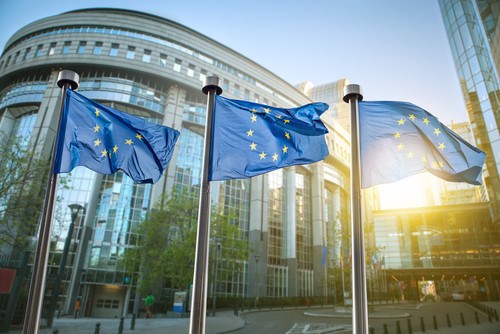European shippers and other transport bodies have written to European Commission president Ursula von der Leyen to express their “strong disapproval” of the commission’s recent decision to extend the liner consortia block exemption for four more years.
But they say that they will not make any fresh attempt to overturn the decision, concentrating on ensuring that the commission does not extend the exemption another four years when the current extension expires on 25 April 2024.
In their letter, they complain that the importance of their opinions as stakeholders in the supply chain was not fully considered by the commission, which assessed the validity of the exemption solely from the shipping companies’ viewpoint.
They were particularly disappointed that the commission did not take up their suggestion to limit the extension to one year rather than four.
“This would have allowed a thorough, fair and more balanced review, taking into account other sources of data than those provided by the representatives of the liner shipping industry,” they said.
The exemption, which allows shipping companies to co-operate to provide joint services in apparent contradiction with EU competition law, has been a long-standing bone of contention between the shipping companies and other EU transport bodies, which see the exemption as a competitive advantage for liner operators.
Denis Choumert, chairman of the European Shippers’ Council (ESC), which signed the letter with forwarders body CLECAT, terminal operators’ body FEPORT, the European Tugowners’ Association and the European Transport Workers’ Federation, told Container News, that those opposing the extension had no further recourse open to them.
He said that they would now concentrate on forging closer contacts with the commission and commission directorates with a view to preparing for the consultations on the next possible extension, which the commission said would start before the end of 2021.
The commission announced its decision to extend the Consortia Block Exemption Regulation in March, arguing that it had resulted in lower prices and a better quality of service for consumers.
Andrew Spurrier
European Correspondent







